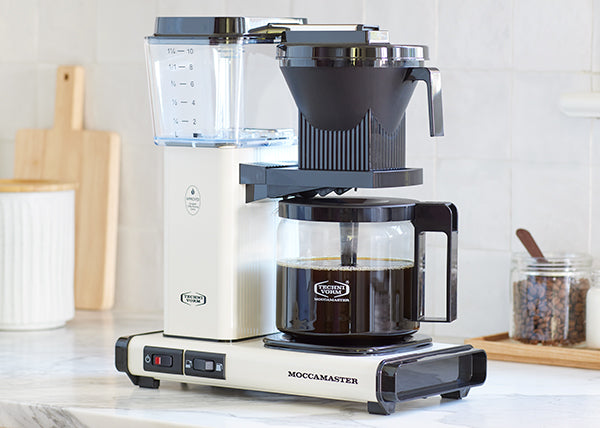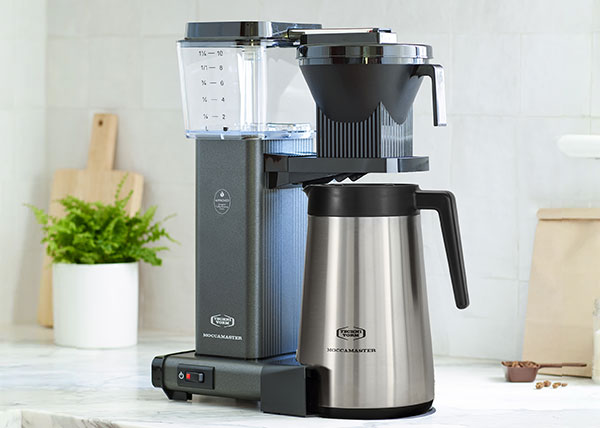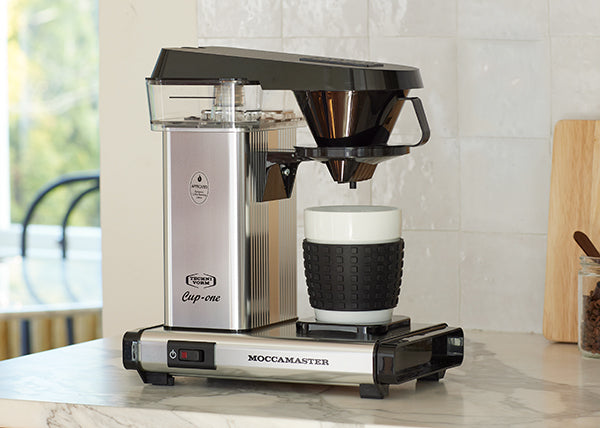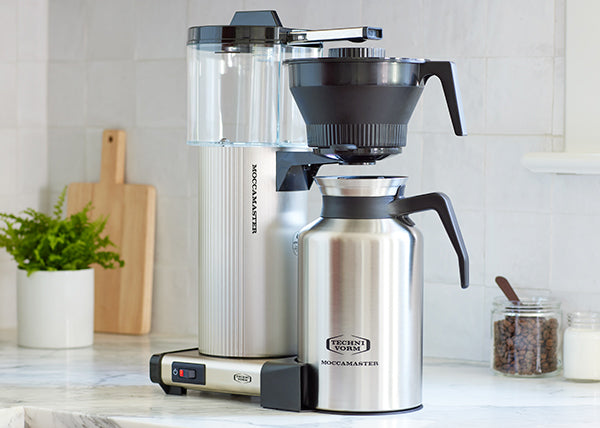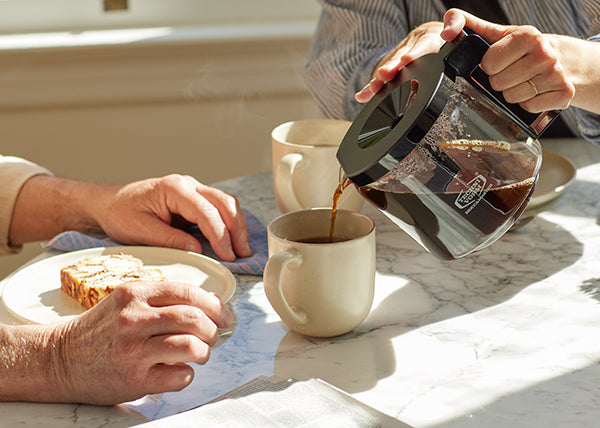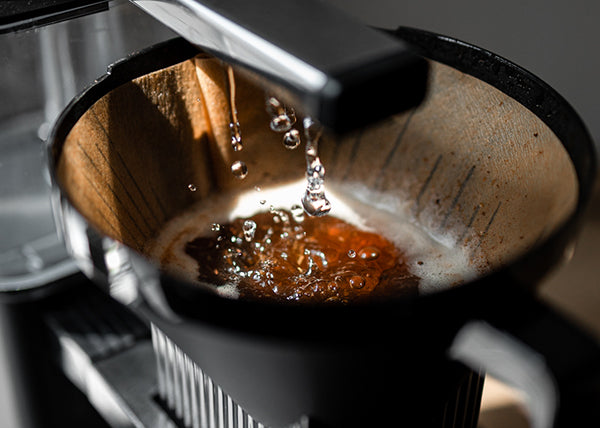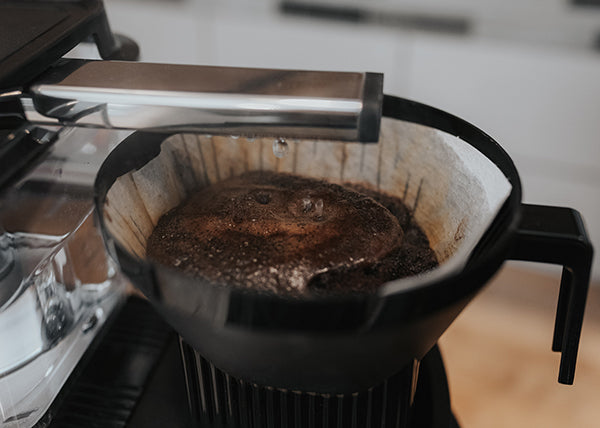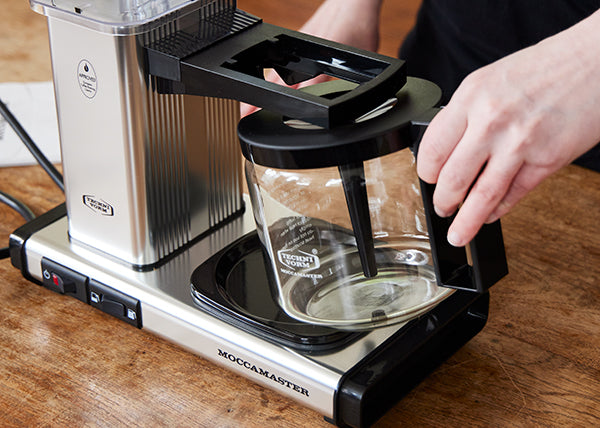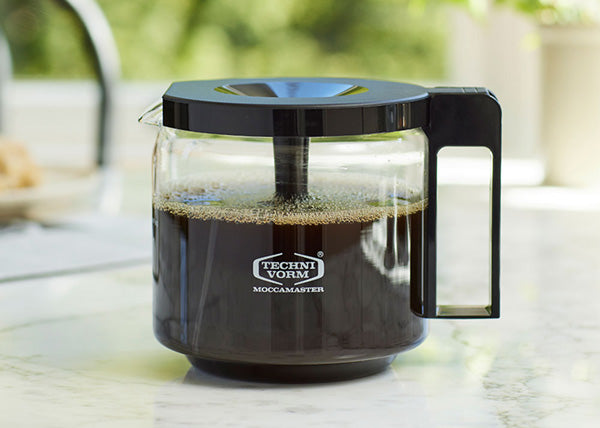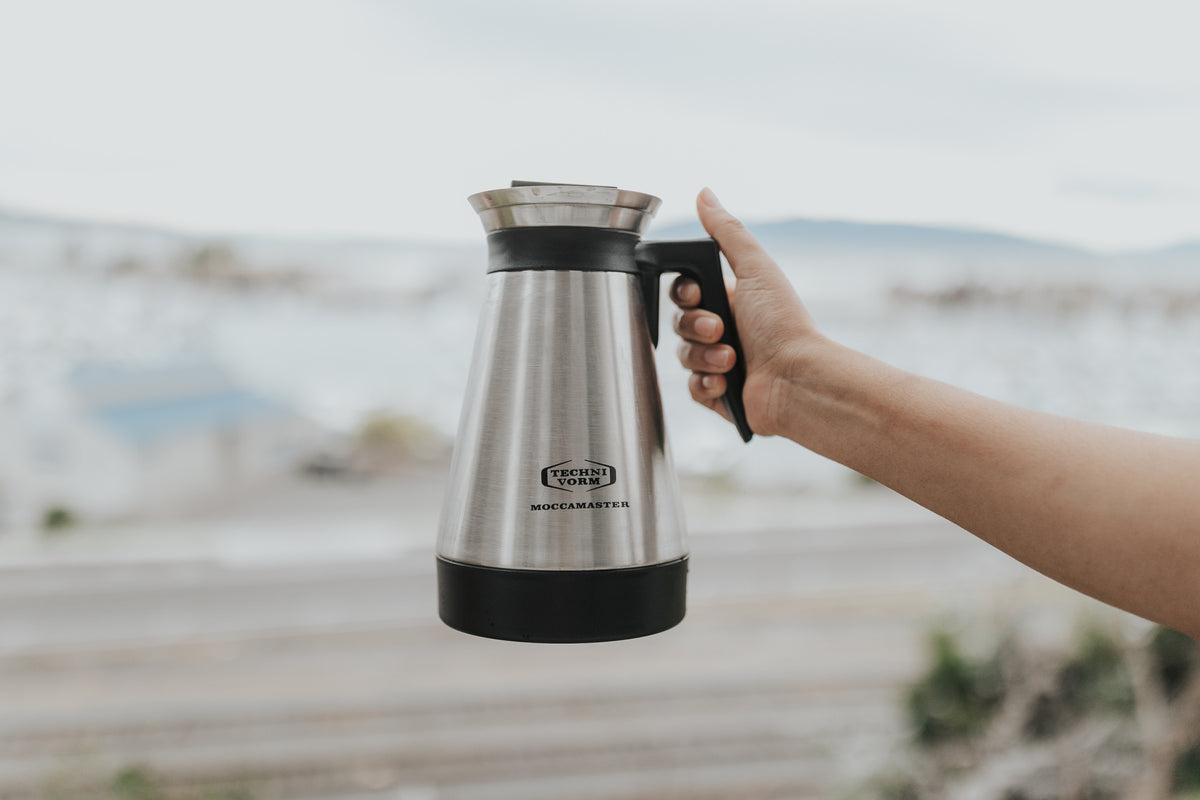To celebrate Earth Month 2022, we’d like to share various ways you can protect the planet with our weekly Earth Month blog series. Here you’ll find tips, statistics, and resources to understand and lower your carbon footprint with your coffee! This week, we’re kicking it off with these five tips to make your coffee routine more eco-friendly.
-
Brew Your Coffee at Home
There’s no better way to limit your carbon footprint – and save money – than to make your coffee at home in a Moccamaster. Cutting back on drive-thrus to get your daily coffee reduces carbon emissions. Limiting your to-go coffee reduces environmental waste from paper cups, sleeves, and straws. Brewing on a Moccamaster is more sustainable than using other machines. Our brewers are built for life, with recyclable parts and a five-year warranty. We have an in-house service center in the US, and our brewers’ modular design means any brewer can be repaired when needed. You can replace the parts rather than replace the entire brewer. Moccamaster coffee brewers come packaged in recyclable material. With our dual heating elements, the copper boiling element shuts off once water departs the reservoir and the power switch controlling the hotplate shuts off after just 100 minutes. Both help reduce power consumption and adds to the long life of the brewer itself. Read more about our commitment to sustainability.
-
Brew Only What You Intend to Drink
Limiting waste is an essential step in going eco-friendly with your coffee. If you don’t often drink a full carafe of coffee, make less. With the half carafe setting on the KBGV Select, you can brew a half carafe of perfect coffee. It’s the only brewer that is SCA and ECBC-approved to brew a full and half carafe of coffee to the Golden Cup Standard. If you find that you only drink one cup a day, the Moccamaster Cup-One brewer is the perfect brewer for you. Even better, the Cup-One uses traditional filters, not pods, which means you’re getting fresher coffee, and you aren’t throwing plastic pods into landfills.
-
Compost Your Filters and Coffee Grounds
Another technique to reduce waste is also great for your garden. Instead of throwing your used Moccamaster coffee filters and wet coffee grounds into the garbage, compost them. Moccamaster filters are made in the Netherlands without any chemicals or glues and are naturally whitened using a bleach-free, oxygen-based method. They are FSC Certified, ensuring they are made from responsibly managed forests. And the best part? They are 100% biodegradable. Instead of going to a landfill, our filters can be composted for soil treatment and fertilizer for your yard, garden, or otherwise. Read more about coffee filters here.
-
Clean Your Brewer with Eco-Friendly Cleaners
It’s essential to keep your Moccamaster clean and descaled. We recommend cleaning your coffee brewer regularly and descaling it every 100 brew cycles when you open a new box of filters. For an eco-friendly solution, we recommend Urnex BioCaf Cleaning Powder and Descaler. Biodegradable, phosphate-free, and non-toxic, BioCaf products are made from plants and minerals and are strong enough to clean and descale the toughest buildup.
-
Buy Coffee from Eco-Friendly Roasters
Many specialty coffee roasters are embracing the growing trend of sustainability in their operations and business practices. Whether it’s using solar power at their roasteries, using recyclable or compostable packaging, or working with farmers who practice sustainable agriculture, there are many ways that roasters are working to reduce their carbon footprint. One solid technique you can employ is purchasing your coffee from a local roaster. This can cut back on some transportation needed to get your coffee.
If you’re interested in learning more about sustainability in coffee roasting, we’ll look at the various ways roasters embrace sustainable practices next week.


